Given Florida’s environment, a well-constructed pool deck can endure for several decades before requiring significant repair. Its material (concrete, pavers, trees, or composite) and how well it is maintained against the strong sun, intense rain, and humidity of the Sunshine State determine how long it will actually last.
As a Florida-based pool and deck contractor, we’ve seen decks that hold strong for a generation and others that need a makeover much sooner. Florida’s climate plays a major role in how long pool decking lasts, and the material you choose can make a big difference.
Below, we break down the expected lifespan of concrete, pavers, wood, and composite pool decking, explain how Florida’s environment affects each, and show you how to get the longest possible life from your deck.
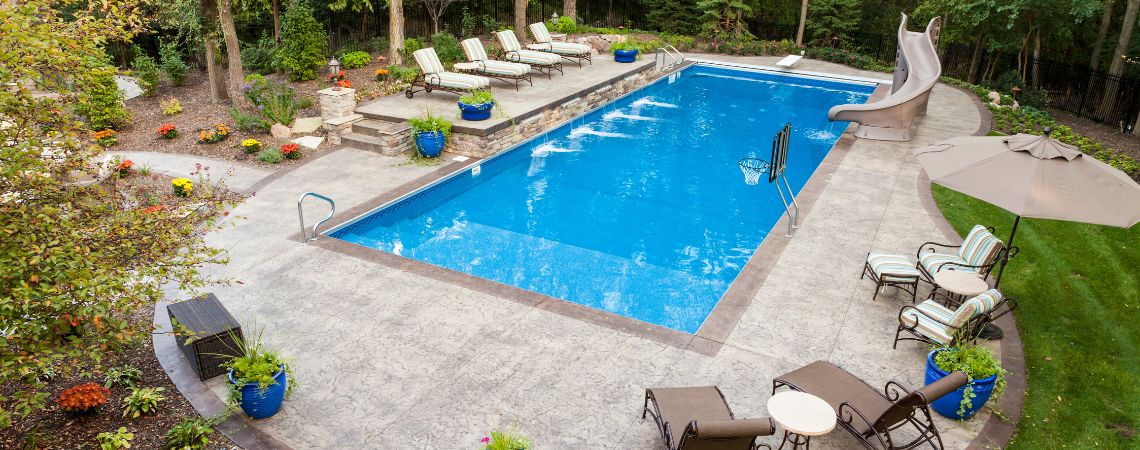
Florida offers a long, enjoyable pool season, but it also brings challenges that directly impact outdoor surfaces.
Despite these conditions, the right decking material — paired with proper installation and maintenance — can thrive in Florida for decades.
| Pool Deck Material | Typical Lifespan in Florida | Maintenance Level | Best For |
|---|---|---|---|
| Concrete | 20–30 years (10–20 if neglected) | Moderate | Budget-friendly, solid durability |
| Pavers | 25–50+ years | Low–Moderate | Long-term value, easy repairs |
| Wood (Pressure-Treated) | 10–15 years | High | Natural look, short-term use |
| Composite | 25–30+ years | Low | Low maintenance, modern homes |
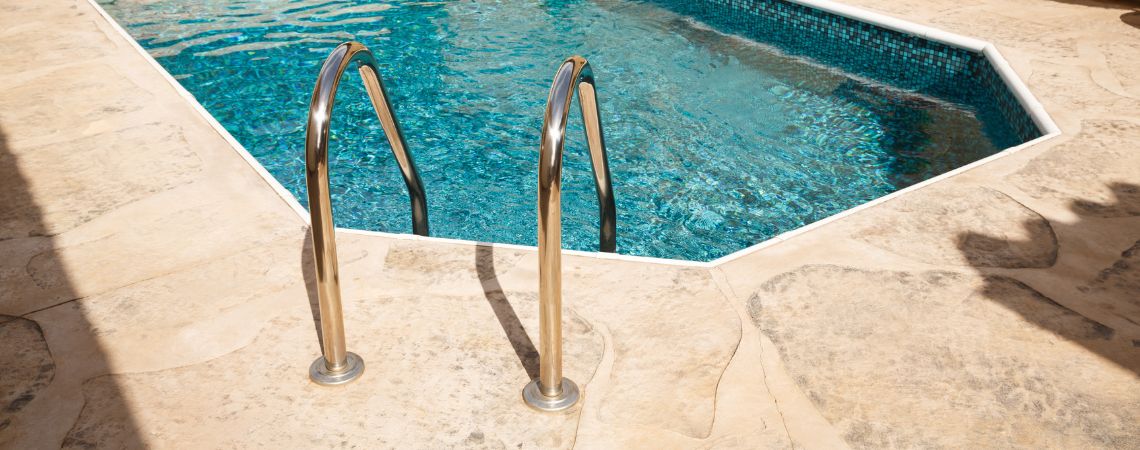
Properly poured and reinforced concrete pool decks typically last 20 to 30 years in Florida. With coatings, texturing, or stamped finishes, concrete offers good slip resistance and visual appeal.
If poorly maintained, concrete decks may show serious cracking or surface failure within 10–20 years.
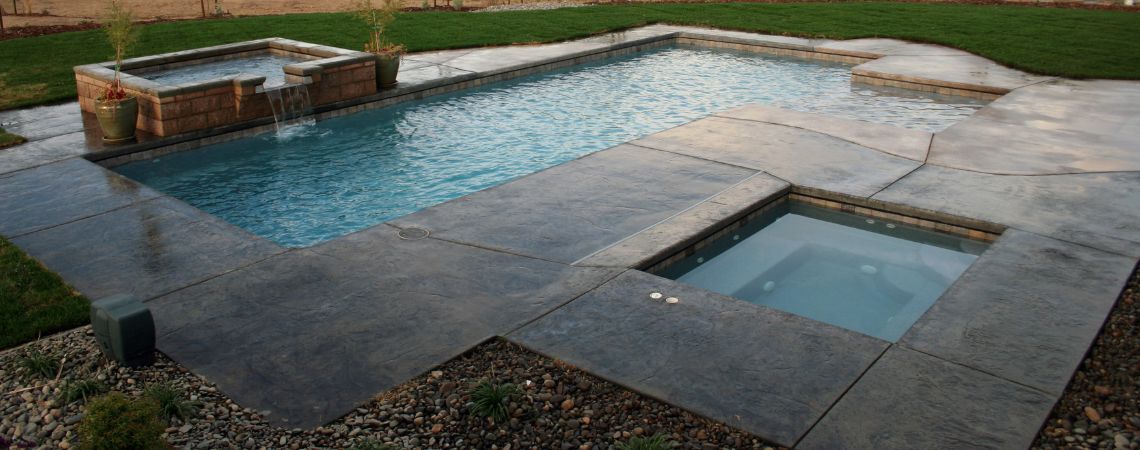
Paver pool decks are one of the longest-lasting options for Florida homes. Individual pavers allow movement without cracking, making them ideal for shifting soils and heavy rain.
25–50 years or more, especially when properly installed and maintained.
Travertine and shellstone pavers are especially popular in Florida due to their natural cooling properties and salt resistance.
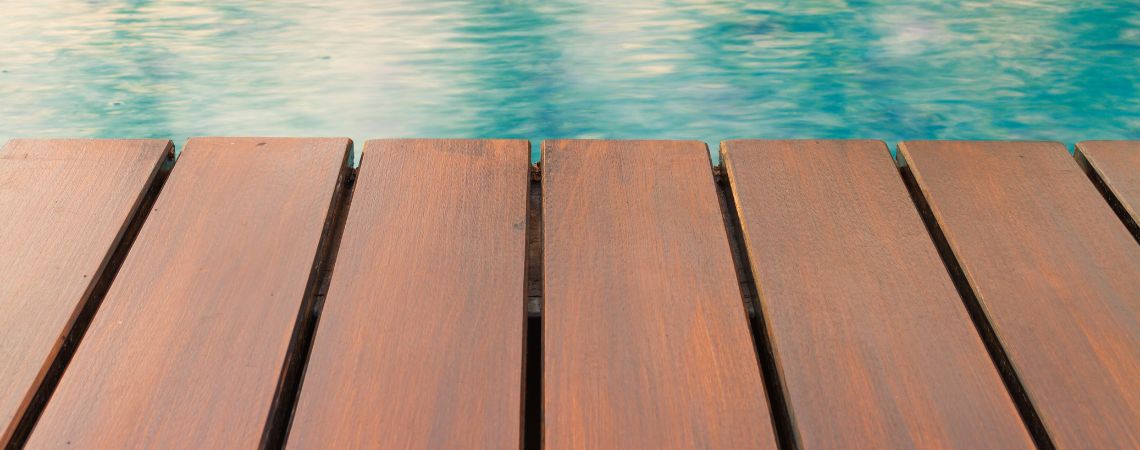
Wood decks offer classic charm, but Florida is extremely hard on natural materials.
10–15 years with regular maintenance
7–8 years if neglected
Wood can work in Florida — but it demands consistent care and realistic expectations.
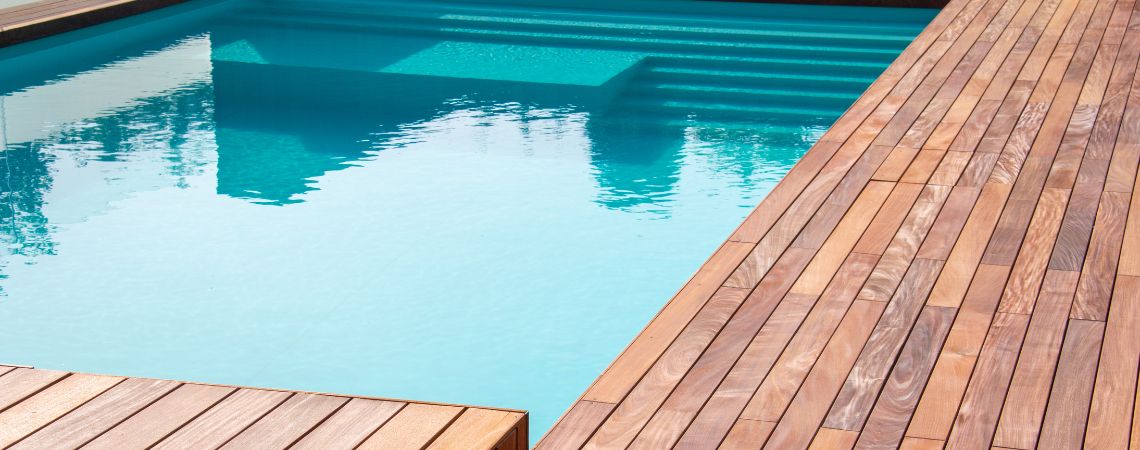
Composite decking has become a favorite for Florida pool decks due to its durability and minimal upkeep.
25–30+ years, often backed by manufacturer warranties
Modern capped composites resist moisture, fading, stains, and splintering — making them a strong alternative to wood.
| Feature | Concrete | Pavers | Wood | Composite |
|---|---|---|---|---|
| Rot / Termite Risk | None | None | High | None |
| Crack Resistance | Moderate | Excellent | Low | High |
| Salt Resistance | Moderate | High | Low | High |
| Repair Ease | Moderate | Very Easy | Moderate | Easy |
| Slip Resistance | Coatings required | Naturally good | Can be slippery | Good textures available |
Every pool deck will eventually need refreshing. The goal is to maximize safety, comfort, and lifespan while planning upgrades at the right time.
As Florida pool deck specialists, we often spot early warning signs homeowners miss — such as subtle paver settlement or hidden wood rot at structural joints. Getting a professional evaluation early can save thousands and extend your deck’s life by years.